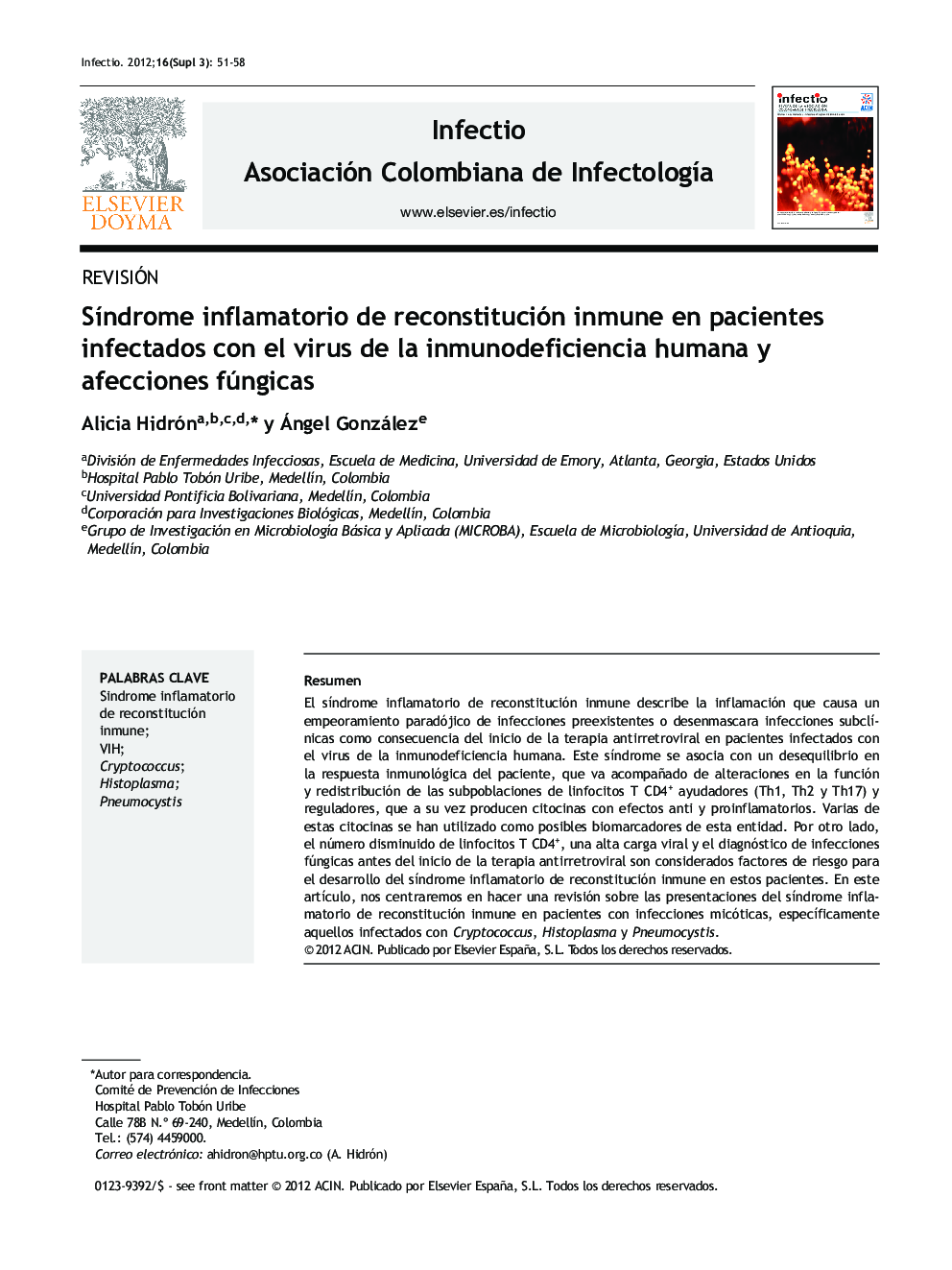| کد مقاله | کد نشریه | سال انتشار | مقاله انگلیسی | نسخه تمام متن |
|---|---|---|---|---|
| 3403772 | 1223092 | 2012 | 8 صفحه PDF | دانلود رایگان |

ResumenEl síndrome inflamatorio de reconstitución inmune describe la inflamación que causa un empeoramiento paradójico de infecciones preexistentes o desenmascara infecciones subclínicas como consecuencia del inicio de la terapia antirretroviral en pacientes infectados con el virus de la inmunodeficiencia humana. Este síndrome se asocia con un desequilibrio en la respuesta inmunológica del paciente, que va acompañado de alteraciones en la función y redistribución de las subpoblaciones de linfocitos T CD4+ ayudadores (Th1, Th2 y Th17) y reguladores, que a su vez producen citocinas con efectos anti y proinflamatorios. Varias de estas citocinas se han utilizado como posibles biomarcadores de esta entidad. Por otro lado, el número disminuido de linfocitos T CD4+, una alta carga viral y el diagnóstico de infecciones fúngicas antes del inicio de la terapia antirretroviral son considerados factores de riesgo para el desarrollo del síndrome inflamatorio de reconstitución inmune en estos pacientes. En este artículo, nos centraremos en hacer una revisión sobre las presentaciones del síndrome inflamatorio de reconstitución inmune en pacientes con infecciones micóticas, específicamente aquellos infectados con Cryptococcus, Histoplasma y Pneumocystis.
The immune reconstitution inflammatory syndrome or “IRIS” describes the inflammation that causes paradoxical worsening of pre-existing infections or the unmasking of subclinical infections as a result of the initiation of antiretroviral therapy (ART) in patients infected with HIV. This syndrome is associated with disequilibrium in the immune response of the patient, which is accompanied by alterations of the function and distribution of CD4+ T helper (Th1, Th2 and Th17) and regulatory (Treg) lymphocytes which produce cytokines with anti- and pro-inflammatory effects. Several of these cytokines have been used as possible biomarkers for this entity. On the other hand, low numbers of CD4+ T cells, a high viral load and fungal infections diagnosed prior to starting ART are considered risk factors for the development of IRIS in these patients. In this article we will focus on reviewing IRIS in patients infected with fungal pathogens, specifically with Cryptococcus, Histoplasma and Pneumocystis.
Journal: Infectio - Volume 16, Supplement 3, December 2012, Pages 51–58